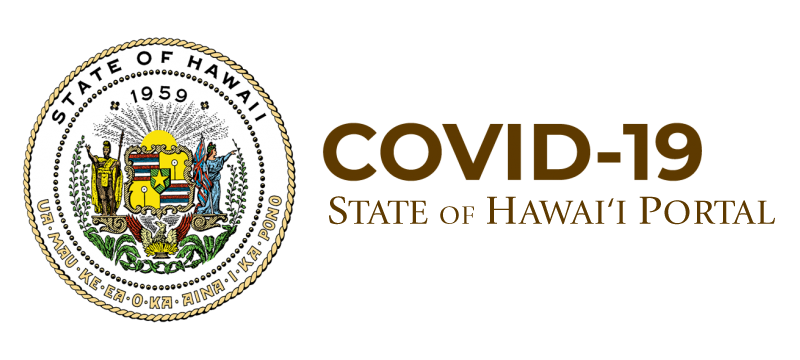Research shows that half of Hawaii’s population wants the vaccine and another quarter are still deciding
HONOLULU – Findings from a survey that was conducted last month have informed the Hawai‘i State Department of Health’s focus on outreach to key segments of the population that are prioritized to receive the COVID-19 vaccination. The study also affirmed that Hawai‘i residents understand and support the need to allow those with the greatest risk from COVID-19 to receive the vaccine first and that we have to wait our turn as the vaccine supply becomes available.
About half of Hawai‘i residents said in a recent survey that they will take a COVID-19 vaccination while about 25% were still deciding. More than 70% indicated they understand the need to prioritize available vaccines first to those who are most at risk.
The survey was conducted Nov. 30 to Dec. 14 by Olomana Loomis ISC and New York-based Pathfinder, before the vaccine became available in Hawai‘i. In all, 3,846 people responded to the survey, with a margin of error of +/- 1.58% and a 95.2% level of confidence.
“The results of this survey confirm what the Department of Health and our partners are hearing on the ground—that there is interest in Hawai‘i for the COVID-19 vaccination. As we continue expanding vaccinations to more communities, it’s reasonable to expect that many of those who are undecided will choose to be vaccinated as they see more of their friends, neighbors and fellow Hawai‘i residents receive their doses,” Health Director Dr. Elizabeth Char said.
An overwhelming majority of healthcare workers have turned out to receive their vaccination doses.
Kaiser Permanente Hawaii, the Queen’s Health Systems, and Hawai‘i Pacific Health have reported a strong interest in the vaccination since it was available, averaging nearly three-fourths of their workforce.
In December, DOH hosted several virtual town halls to educate healthcare providers on the vaccine, both as early recipients and to assist their efforts in engaging patients and other community members.
The high demand for vaccination, meanwhile, has led to the introduction of a video ambassador program, featuring community members who’ve received the vaccine and are urging other Hawai‘i residents to do the same when it’s their turn.
The study also affirmed the importance of reaching ethnic minority groups and populations who do not have English proficiency.
“We have spent months listening and developing networks to understand community needs, and to ensure that our partners have timely, accurate public health information to reach their constituents and congregations,” said CJ Johnson, COVID-19 Outreach and Public Health Education Specialist. “Language-specific and culturally accessible resources have been and continue to be developed for populations who are not reached as effectively through traditional advertising.”
The survey also found that:
- A greater number of respondents said they are more concerned about the pandemic’s impacts on the United States and the world rather than how it affects themselves personally, their families or their communities.
- Three in four respondents said they believe effective containment measures are just as important as effective vaccines.
- Those living in urban Honolulu were more likely to get vaccinated than those in other areas of O‘ahu. Maui County residents were least likely to receive the vaccine.
- Those in the hospitality, attractions, transportation, senior care, nonprofit, restaurant, healthcare and education industries reported feeling most impacted personally by COVID-19.
- Men, those who are 65 and older, are in a healthcare or education profession, are higher educated and have higher incomes are more likely to get vaccinated. Those of Caucasian, Korean, Japanese and Chinese ancestry are also more likely to receive the vaccine.
- Respondents who are women, between 18 and 34 years of age, obtained no more than associate degrees and earned lower income were less likely to be vaccinated. African-Americans, Hispanics, Native Hawaiians, other Pacific Islanders and Samoan were also less likely to receive the vaccine, the survey said.
For more about the survey, see the detailed survey report.
# # #
Denby Fawcett: Why So Few People Are Getting The New Covid Shot
Experts are worried about the lack of interest as people are still suffering from the virus and long Covid. By Denby Fawcett Original article on Civil Beat, November 7, 2023 I keep a card in my [...]
Federal Public Health Emergency (PHE) for COVID-19 ends on May 11, 2023
HONOLULU, HI –The federal Public Health Emergency (PHE) for COVID-19, declared under Section 319 of the Public Health Service Act, will expire at the end of the day on May 11, 2023. As the PHE [...]
Seniors now eligible for additional COVID-19 bivalent booster dose, COVID vaccine recommendations simplified
HONOLULU, HI – The Hawai‘i Department of Health (DOH) supports the latest recommendations announced yesterday by the Centers for Disease Control and Prevention (CDC), allowing an additional dose of the bivalent booster against the virus [...]
Hawai‘i COVID-19 hospitalizations on the rise
HONOLULU, HI – The Hawai‘i Department of Health (DOH) reports a rise in the rate of COVID-19 hospitalizations. The number of total positive COVID-19 hospitalizations has increased over the past week (3/26 – 4/4) from [...]
Wastewater Samples Show Higher COVID Concentrations & New Subvariant
The Hawai‘i State Department of Health’s most recent Wastewater Surveillance Report documents two significant developments about COVID-19 in Hawai‛i. Higher concentrations of the virus that causes COVID-19 The arrival of the XBB.1.5 subvariant Higher concentrations [...]
Bivalent boosters for keiki as young as 6 months
Updated COVID-19 bivalent boosters are now available in all counties for keiki as young as six months of age. The U.S. Food and Drug Administration (FDA) amended the emergency use authorization for the bivalent boosters [...]
